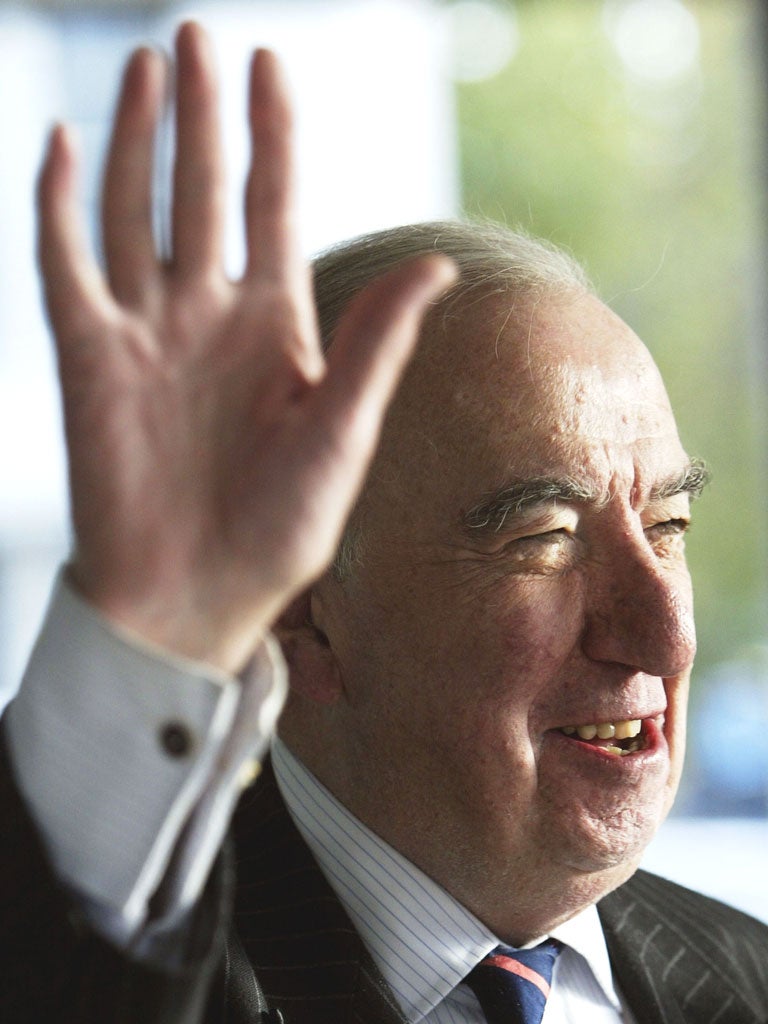Tributes paid to Lord St John of Fawsley, a political 'one-off'
Former Tory minister who nicknamed Thatcher 'Tina' dies at 82

Your support helps us to tell the story
From reproductive rights to climate change to Big Tech, The Independent is on the ground when the story is developing. Whether it's investigating the financials of Elon Musk's pro-Trump PAC or producing our latest documentary, 'The A Word', which shines a light on the American women fighting for reproductive rights, we know how important it is to parse out the facts from the messaging.
At such a critical moment in US history, we need reporters on the ground. Your donation allows us to keep sending journalists to speak to both sides of the story.
The Independent is trusted by Americans across the entire political spectrum. And unlike many other quality news outlets, we choose not to lock Americans out of our reporting and analysis with paywalls. We believe quality journalism should be available to everyone, paid for by those who can afford it.
Your support makes all the difference.Norman St John Stevas, who did more than any other politician of his generation to strengthen the power of the House of Commons, has died at the age of 82, it was announced yesterday. His family said that he died on Friday, after a short illness.
When he was Leader of the House of Commons, in Margaret Thatcher's first Cabinet, he introduced the Select Committee system under which each government department answers to a committee of backbench MPs. In the intervening 30 years, the Stevas system has proved to be by far the most effective means by which the Commons can call ministers, civil servants and other influential people to account.
Lord St John of Fawsley, as he became known in 1987, also arranged for MPs' salaries to be doubled, from less than £7,000 to almost £14,000 in three annual stages.
He was the only cabinet minister, apart from Sir Keith Joseph, to have supported Margaret Thatcher in the 1975 leadership election, and so was deeply shocked when he was the first cabinet minister she sacked in January 1981.
He was neither ineffective nor disloyal, but his reforms pleased her less than they pleased backbench MPs, and she was set on having a more right-wing cabinet. He never signed up to Mrs Thatcher's radical economic policies, and was reputedly the author of the mocking acronym Tina, short for There is No Alternative.
He once complained: "Because I am burdened with a capacity for wit, people have sometimes had the impression that I am not serious in my approach. Nothing could be farther from the truth."
An example of this affliction was when he remarked, in 1979: "One should not be a name-dropper, as Her Majesty remarked to me yesterday." He was obviously joking, but the quotation has been thrown back at him countless times, as if he meant it. He was a confidant of royalty, but took care not to divulge conversations he had with them.
Flamboyant and eccentric in his manner and the way he dressed, he was assumed to be gay in an era when it would have been political death for a gay politician to acknowledge his sexuality. He was independently wealthy, and was sometimes seen driving up to Clarence House in his white Rolls Royce to drop off a bouquet for the Queen Mother.
Two old opponents of Mrs Thatcher paid tribute to him yesterday. The Justice Secretary, Ken Clarke, told the BBC Lord St John was a "good minister" and former deputy prime minister Lord Heseltine said he was a "one-off".
He quit the Commons in 1987, after 23 years as MP for Chelmsford, and entered the House of Lords. A former arts minister, he spent much of his semi-retirement as an advocate for the arts and higher education. He served as chairman of the Booker panel of judges and the Fine Arts Commission, and was a prolific author.
Join our commenting forum
Join thought-provoking conversations, follow other Independent readers and see their replies
Comments